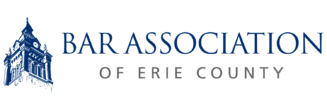NEW YORK−The court system’s Administrative Board, comprising the Chief Judge and the four Presiding Justices of State Supreme Court’s Appellate Division, has approved changes to two rules governing the professional conduct of attorneys in New York State.
The Administrative Board has adopted revisions to a rule that had banned law firms from advertising their services under trade or domain names. While the original intent was to prevent misleading the public about the identity, responsibility and status of those who use the name, the rule (New York Rule of Professional Conduct 7.5) was based on outdated professionalism standards, spurring a First Amendment challenge that further argued that the rule was overbroad.
In April, the New York State Bar Association’s Committee House of Delegates approved a revised rule proposed by the Committee on Standards of Attorney Conduct that prohibits names that are false, deceptive or misleading. The revision also reorganizes the structure of the rule, deleting superfluous portions and adding guidance regarding proper and improper law firm names. The Administrative Board has adopted the Committee’s recommendations with some modifications, putting New York on par with many other jurisdictions throughout the country that allow the use of trade names.
Additionally, the Administrative Board has approved an amendment to New York Rule of Professional Conduct 1.8(e), allowing legal services organizations and pro bono attorneys to provide financial assistance to low-income clients beyond the costs and expenses of litigation that had previously been permitted.
Soon after the COVID-19 pandemic hit, bar associations began to field calls from lawyers and nonprofit groups who wished to assist indigent clients to pay for food and other basic needs without facing disciplinary action. The amended rule relaxes the ban on providing financial assistance to clients, allowing lawyers to provide humanitarian assistance to their clients in dire need while keeping appropriate ethical safeguards in place.
The Administrative Board adopted the humanitarian exception with the following limitations: funds raised for any legal services organization for purposes of providing legal services will not be considered for humanitarian purposes; and financial assistance may not include loans or any other form of support that causes the client to be financially beholden to the provider of assistance.
# # #

